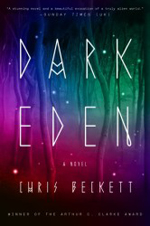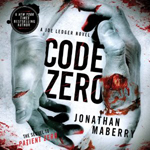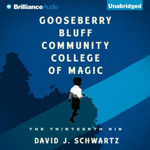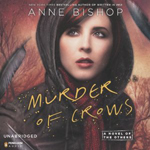
 1634: The Baltic War
1634: The Baltic War
By Eric Flint and David Weber; Read by George Guidall
Publisher: Recorded Books
Publication Date: 17 September 2013
[UNABRIDGED] – 26 hours 20 minutes
Themes: / alternate history / time travel / military
1634: The Baltic War, although a weighty volume in its own right, is but one stitch in the giant tapestry that is Eric Flint’s sweeping Ring of Fire series. The series imagines the tumultuous Thirty Years War in seventeenth-century Europe disrupted by the arrival of a small West Virginia town sent back in time from the year 2000 by a freak cosmic accident. As masterfully told in the series opener 1632, the injection of modern technology and ideas into this bleak post-Reformation world has immediate and far-reaching consequences. The synopsis for 1634: The Baltic War illustrates just how much things have changed.
The Baltic War which began in the novel 1633 is still raging, and the time-lost Americans of Grantville – the West Virginia town hurled back into the seventeenth century by a mysterious cosmic accident – are caught in the middle of it.
Gustavus Adolphus, King of Sweden and Emperor of the United States of Europe, prepares a counter-attack on the combined forces of France, Spain, England, and Denmark – former enemies which have allied in the League of Ostend to destroy the threat to their power that the Americans represent – which are besieging the German city of Luebeck.
Elsewhere in war-torn Europe, several American plans are approaching fruition. Admiral Simpson of Grantville frantically races against time to finish the USE Navy’s ironclad ships – desperately needed to break the Ostender blockade of the Baltic ports. A commando unit sent by Mike Stearns to England prepares the rescue the Americans being held in the Tower of London.
In Amsterdam, Rebecca Stearns continues three-way negotiations with the Prince of Orange and the Spanish Cardinal-Infante who has conquered most of the Netherlands. And, in Copenhagen, the captured young USE naval officer Eddie Cantrell tries to persuade the King of Denmark to break with the Ostender alliance, all while pursuing a dangerous romantic involvement with one of the Danish princesses.
This overview gives a sense of the novel’s sweeping scope, both geographically and in terms of content. In some ways, this book and the series as a whole brings to mind Neal Stephenson’s ambitious Baroque Cycle, but while Stephenson’s work focuses on scientific and cultural developments Flint and Weber, at least in this volume, are telling a story of war. This isn’t to say that culture is absent from the chapters of 1634. Indeed, the novel draws both insight and humor from the juxtaposition of modern popular culture and European values. In one early scene, for example, a concert features classic Baroque harpsichord followed by a modernist piano concerto featuring music by Chopin and closing with twentieth-century Christmas songs. It’s also amusing to hear Europeans try and puzzle out exactly who this Elvis Presley character was.
While, as I said, 1634: The Baltic War is a military novel, and does feature occasional scenes of violence and hardship, overall its tone is light and even casual despite the depth and complexity of the book’s subject matter. While this renders the book almost instantly accessible, I can’t help but feel that at times the lack of gravitas fails to do justice to the enormity (in its original sense) of the Thirty Years War. To return to the previous comparison, Stephenson’s writing in the Baroque Cycle is much more opaque and, well, baroque, but the style seems to suit the subject matter. On the plus side, the story benefits from Eric Flint’s considerable experience in writing alternate history along with David Weber’s military background. Despite the world’s massive scope, every corner of it feels lived in and fleshed out.
George Guidall takes on the arduous task of bringing together seventeenth- and twentieth-century characters and cultures in this melting pot of a novel, and as usual Guidall is up to the challenge. From the brusk military clip of Admiral Simpson to the slight lilt of the larger-than-life Gustavus Adolphus, Guidall makes every element of the story from both past and present come alive.
Listeners who love military fiction, alternate history, or time travel can’t go wrong with 1634: The Baltic War, though to fully appreciate the novel they would do well to begin with the first installment in the Ring of Fire series, 1632. As perhaps is inevitable with a series of this magnitude, there are flaws and aspects that fail to please. But this book is only one chapter in what might just be Eric Flint’s magnum opus.
Posted by Seth Wilson
 Seal Team 13
Seal Team 13 Dark Eden (Dark Eden #1)
Dark Eden (Dark Eden #1) Code Zero (Joe Ledger #6)
Code Zero (Joe Ledger #6) Gooseberry Bluff Community College of Magic: The Thirteenth Rib
Gooseberry Bluff Community College of Magic: The Thirteenth Rib Murder of Crows (The Others #2)
Murder of Crows (The Others #2)